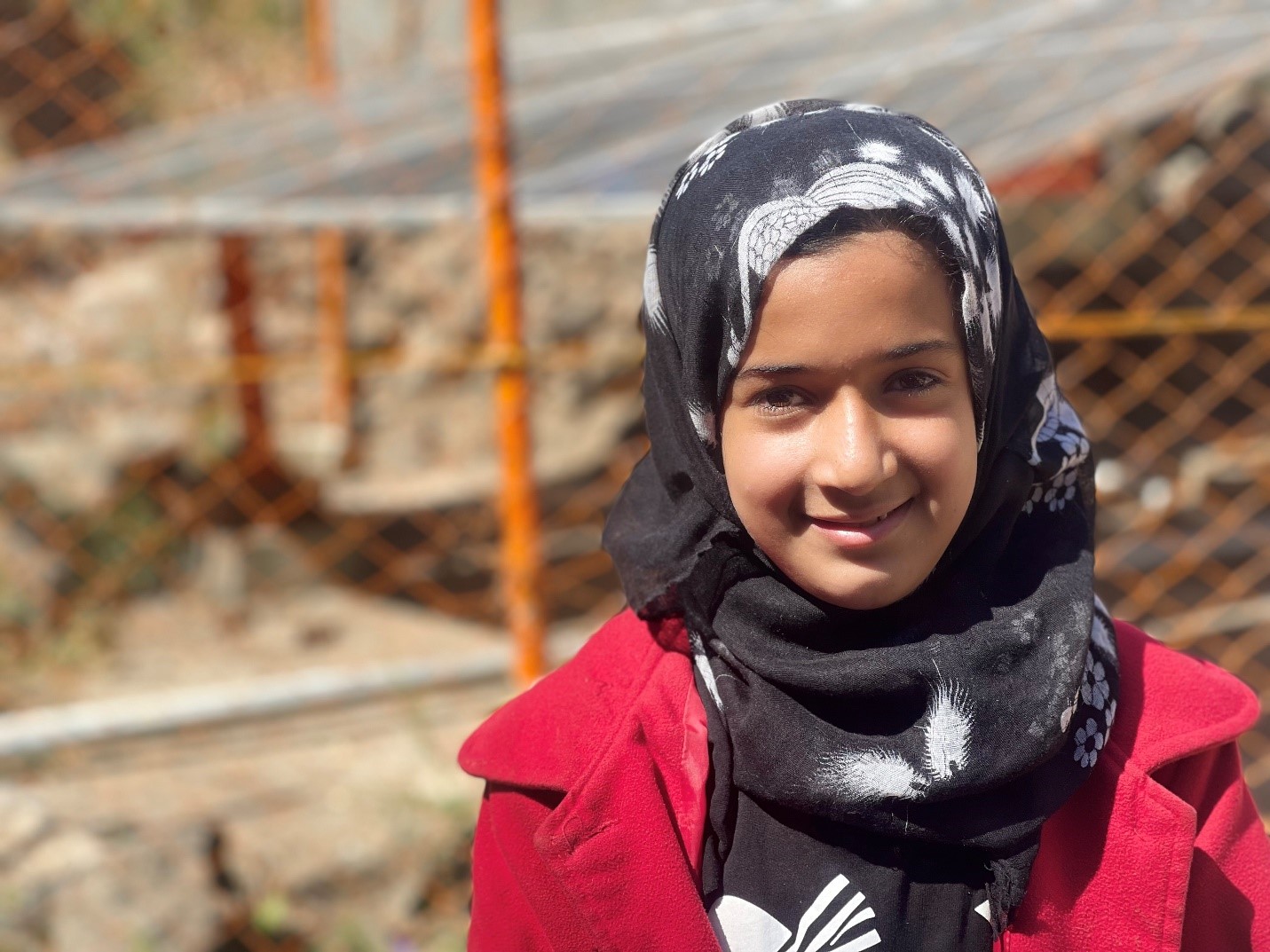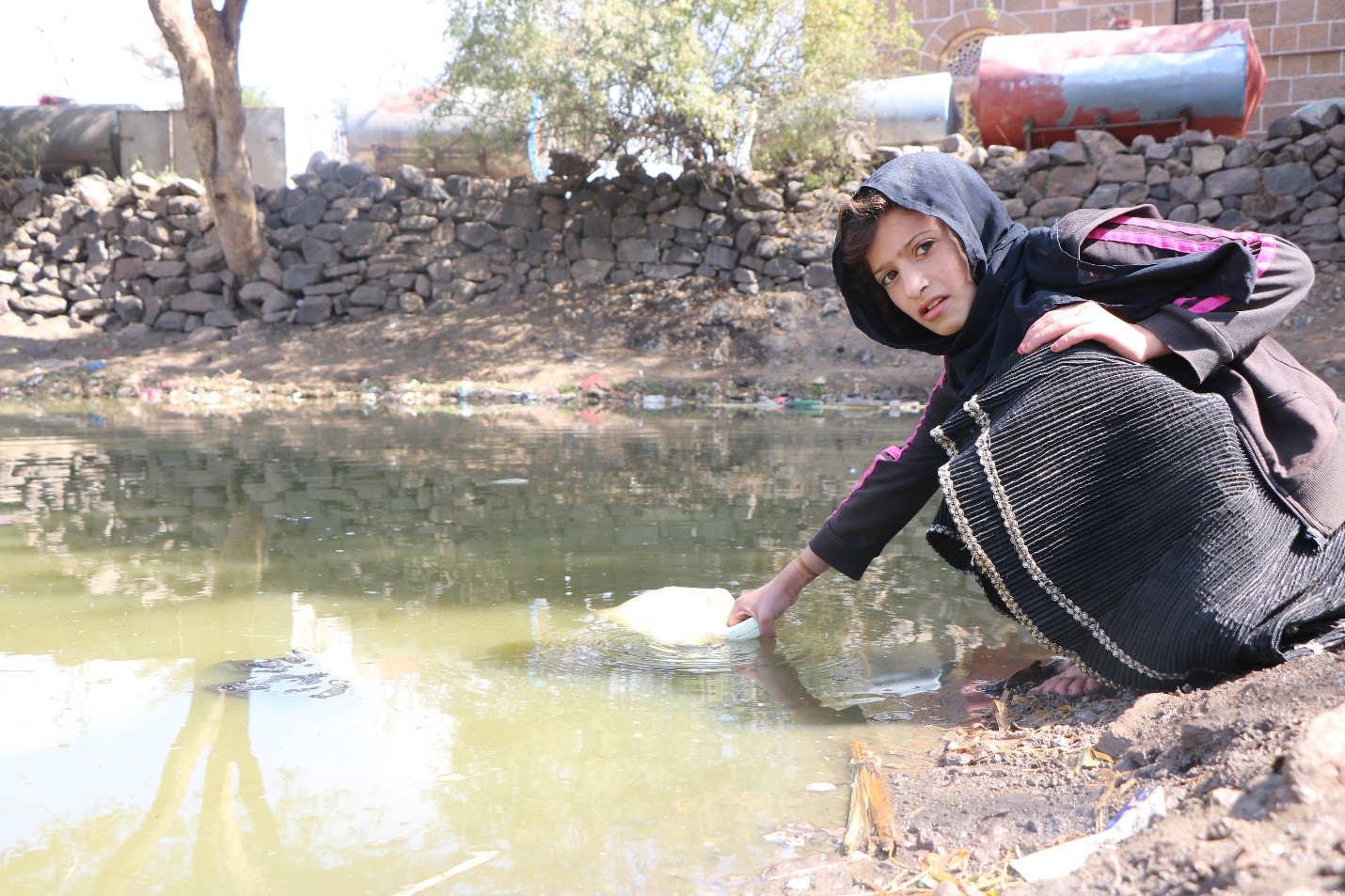Access to safe water was identified as one of the biggest challenges for both men and women. Families had to collect water from alternative sources, often far from their homes. This increased the burden of work, particularly for women and girls, as well as increasing protection risks associated with walking long distances to collect water.
“We were afraid that we or one of our family members would fall due to rough roads. Many donkeys fell and died due to narrow and rough conditions of the road too,” says Zainab, a 15-year-old girl who lives in Dhy-Alakam village of Hubaysh district in Ibb governorate. Travelling to collect water from potentially unknown areas, far away and considered unsafe, can increase women’s risk of harassment. “I had to go out early in the morning to fetch water and sometimes I would get harassed but this has been my only oprion to provide water for my family,” says Zainab.
Only 45% of Yemenis have access to soap, with less than 50% of populations in districts with a high incidence of WASH-related diseases like cholera. This is mainly because they do not wash their hands as needed. “With high prices, most families cannot buy soap, which causes the spread of diseases among these families.” Says Zainab.
Fortunately for residents in Hubaysh and Al Udayn districts of Ibb governorate, with funding from Global Affairs of Canada (GAC), CARE directly helped over 32,000 people to access safe water through rehabilitation of water system and installation of a solar energy system to alleviate the hardship the residents had been experiencing. CARE also distributed hygiene kits for 2,085 households. “Now, I don’t have to fetch water more than one time a day. Time is saved. The water distribution point is near to our home, so I have time to attend classes and I hope I can fulfill my dream and be a teacher in the future,” says Khadijah, clearly showing her satisfaction in being able to study more comfortably.
CARE also conducted a training on hygiene practices and promotion for community volunteers. The community volunteers share their knowledge about hygiene and help to improve their communities’ practices. “Every day, we pray for those who helped us to have safe and clean water. Thanks CARE for saving our lives, time and dignity,” Zainab concludes.



